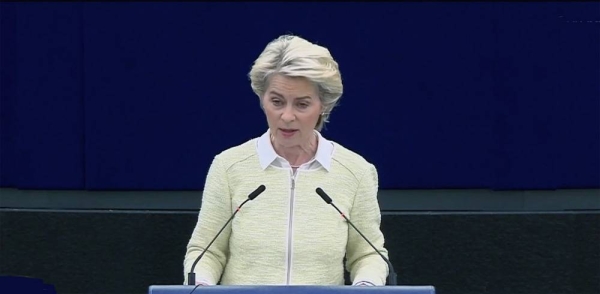
LONDON (Reuters Breakingviews) - Royal Dutch Shell is presenting investors with a choice. While BP’s long-term strategy envisages major reductions in oil output and big pivots to renewable energy, its Anglo-Dutch counterpart on Thursday set out a much more business-as-usual plan. Which one prevails will say something about the two hitherto-similar oil majors, but also the true preoccupations of their shareholders.
Talk of a great divide might seem exaggerated. After all, Shell Chief Executive Ben van Beurden’s target to eliminate carbon emissions per unit of energy by 2050 is analogous to BP boss Bernard Looney’s goal. Indeed, Shell is arguably being more ambitious because the British company, for example, excludes emissions from its stake in Russian giant Rosneft. The difference, however, is how the two CEOs envisage arriving at their destination.
BP plans to cut oil and gas production by 40% by 2030, and hike generation of wind and solar power 20-fold to 50 gigawatts. Shell’s oil output will only fall 1% to 2% a year, implying a total cut of roughly 15% at the mid-point of the range. And while Van Beurden will spend around a tenth of annual capital investment of $19 billion to $22 billion on renewables, he’s not setting any capacity targets.
BP shares have underperformed since Looney outlined his strategy in September last year, and this week the company turned heads by paying top dollar for leases on British sea-beds on which to build wind turbines. Shell will hope its more stable balance sheet and conservative strategy are enough for investors increasingly conscious of environmental, social and governance concerns.
The problem is that Shell is assuming a major future intervention. Its plan requires the amount of emissions removed from the atmosphere via so-called carbon capture and storage facilities to grow fivefold to 25 million tonnes by 2035, along with 120 million tonnes of carbon to be absorbed by “nature-based solutions” like planting trees. ESG purists dislike carbon capture because it is untested at scale and requires state subsidies. And they’re suspicious of carbon offsets because accounting for the schemes can be opaque.
Shell’s plan may not be enough for some: Aviva Investors last week said it could sell shares in slow-moving carbon emitters. But Van Beurden’s relatively oil-heavy stance will test investors’ green resolve.












